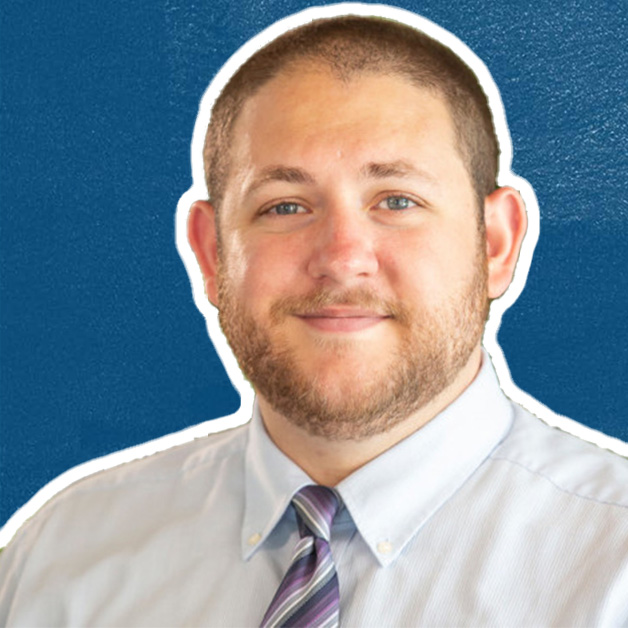
Darby Joyce
Content Marketing Coordinator
As consumers and companies prioritize environmental and social awareness in business, the resulting shift has opened new career opportunities and changed existing ones. BusinessBecause, an organization highlighting news and advice for business-minded graduate students, teamed up with the Kogod School of Business to discuss these opportunities and highlight Kogod’s master’s in sustainability management (MSSM) program. BusinessBecause writer Lili Cariou spoke with MSSM program alumni Josh Kaplan and Samantha Kenny, program director David Bartlett, and director of graduate admissions Lisa Francis about modern education in sustainability and how it can translate into a fulfilling career.
Since graduating from the MSSM program, Kaplan has worked as a market research lead for the Clean Energy Buyers’ Association. This organization works with other institutions to inform and advise on green energy initiatives. Meanwhile, Kenny is a senior program officer for the World Wildlife Fund and focuses on food waste solutions in the hospitality and food service sectors. They both earned undergraduate degrees in environmental studies, though their paths to the MSSM program differed slightly. Kaplan had enjoyed the interdisciplinary nature of his bachelor’s degree and wanted to expand his knowledge base further by pursuing a business education related to his interests.
The MSSM program at Kogod enhanced my ability to be an effective changemaker within a large organization and the sustainability function.”

Josh Kaplan
Senior Manager of Market Insights, Clean Energy Buyers Association
“It provided a wonderful opportunity to continue that very interdisciplinary focus but to ground me in the core principles of organizational management and business,” Kaplan explained.
On the other hand, Kenny pursued a master’s program to enhance her professional skills and advance a specialty skill that would allow her to stand out more to future employers. Though she had entered college with aspirations of working in ocean sampling, she took an interest in the MSSM program after attending a presentation. Kenny quickly found that education in sustainability would give her the career boost she was looking for.
“The program taught me how to take my interest in and understanding of natural systems and fill in the gaps with skills that would help me become a viable professional entering the field,” Kenny said.
As Professor Bartlett explained, both Kaplan and Kenny understand the importance of combining business skills with a sustainability focus. Between global efforts to combat climate change and its effects, a growing consumer demand for sustainability, and the rise of new environmentally-minded careers, he sees an increasing demand for young professionals who can look at these issues from a multifaceted perspective. As such, the MSSM program pulls its faculty from the AU community’s wide range of specialized sustainability experts, leveraging their talents in a business setting.
“Our students come out of the program having taken a set of core courses in finance, analytics, and strategy operations, alongside specialized courses on particular topics in sustainability,” Bartlett explained. “Testimony from our prospective employers say that it’s a very compelling combination to be able to speak the language of business and to be seen as a credible interlocutor.”
The MSSM program is among Kogod’s most popular master’s programs, attracting applicants from various backgrounds. Nearly a third of the program’s students come from outside the United States, particularly from sub-Saharan Africa. “The diversity of students that apply to our program ultimately equates to a diversity of output,” Francis remarked. On the admissions side of the program, her firsthand view of the applicants’ experience and personal statements give her a clear picture of the diverse people passionate about working sustainability into their careers.
As a student with no business background and initially little interest in the economic side of her work, Kenny emphasizes that the MSSM program is a great first step for those interested in a career in business sustainability. The program’s small class sizes and focus on group work allowed her to connect with fellow business, science, and liberal arts students. Regardless of the undergraduate program, these students were all unified by the desire to work environmental responsibility into their futures.
The program shows how different talents can come at this topic and how it takes folks with different skills and interests to address the problems we face at the scale that they need to be addressed.”

Samantha Kenny
Senior Program Officer (Food Waste), World Wildlife Fund
With such a wide array of student backgrounds, the MSSM program has developed a rich global alumni network. Program graduates have founded startups, stayed in the Washington, DC area to work with federal and global institutions, and established themselves in the non-profit, finance, and consulting fields. International students often return home to put their degrees to work globally, frequently in regions that face the brunt of extreme weather brought on by climate change. Bartlett has even seen brand-new industries appear as a result of the sustainability movement.
“All these major corporations have these declarations of their fulfillment of sustainable development goals and ESG achievements, and all of those claims are subject to external validation,” Bartlett said. “As a result, there’s this emerging cottage industry of independent auditors applying very sophisticated techniques and checking these claims.”
An MSSM degree from the Kogod School of Business provides future business leaders with a well-rounded educational core and ample opportunities for experiential learning, from partnerships with sustainable firms to international immersions in Sweden. In his career, Kaplan sees the benefits of pursuing a multifaceted, interdisciplinary degree, and he credits the program’s business core for helping him stand out in his field.
“Having an organizational management background was far more important to the organizations that hired me,” Kaplan said. “They can teach me how a solar panel and a transmission system work, but understanding how stakeholders decide to invest is much harder to teach. That’s something that Kogod teaches very well.”
As environmental challenges and sustainability questions continue to impact every sector, the Kogod looks to equip students with the tools they need to face the future in a meaningful way.
